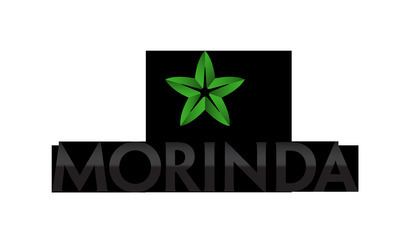Industry Multi-level Marketing Founded 1 July 1996 Revenue 500 million USD | Number of employees 700 | |
 | ||
Key people Kerry O. Asay, John Wadsworth, Kelly Olsen, Kim Asay, Stephen Story Founders John Wadsworth, Kim Asay, Stephen Story, Kelly Olsen, Kerry Asay | ||
Morinda, formerly known as Tahitian Noni International and Morinda Bioactives, a subsidiary of Morinda Holdings, Inc., is a multi-level marketing company that markets products made from the noni plant. Founded in 1996 and based in Provo, Utah, Morinda has approximately 700 employees around the world, with about 350 in the United States. They claim total yearly sales in the range of $500 million yet do not publish any of the earnings publicly. Morinda has manufacturing factories in Tahiti, Japan, China, Germany, and the United States (American Fork, Utah).
Contents
Founders
Products
Morinda's main product is noni juice. The company also markets various personal care products and dietary supplements.
Attorneys General (AZ, CA, NJ, TX) vs. Morinda Holdings, Inc.
On August 26, 1998, the Attorneys General of Arizona, California, New Jersey, and Texas announced a multi-state settlement with Morinda, Inc., the charges stating that Morinda had made "unsubstantiated claims in consumer testimonials and other promotional material that its Tahitian Noni juice could treat, cure or prevent numerous diseases, including diabetes, clinical depression, hemorrhoids and arthritis." Such claims rendered the beverage an unapproved new drug under state and federal food and drug laws and should not have been sold until it received approval. Under the terms of the agreement, Morinda agreed to:
In addition, Morinda agreed to refund to any consumer who requests a refund in writing, the full purchase price paid for the product. The agreement also called for Morinda to pay $100,000 for investigative costs.
Tahitian Noni & XanGo settlement
Tahitian Noni sued XanGo and several of its top executives in February 2003 in 4th District Court in Provo, Utah, alleging that executives stole Tahitian Noni's concept for a mangosteen-based supplement while they were employed by TNI's parent-company, to which XanGo counter-sued. In a joint statement, Tahitian Noni and XanGo did not disclose particulars regarding the settlement, only stating that they have "agreed to resolve their disputes and the litigation between them and their founders."
Possible contamination in Spain
Residents of Spain were alerted in February 2007 to avoid consuming certain improperly labeled bottles of Tahitian Noni Juice while the health department there awaited toxicology reports for a man who died after drinking the juice. According to reports in Spain, a 40-year-old man from Ogijares drank some noni juice for breakfast and began to experience strange sensations in his mouth and blurred vision. He died shortly thereafter, and another family member, who also drank some juice, reported similar symptoms. Reports stated that there were large amounts of cocaine found in the bottles and the body of the deceased man.
The bottles recovered from the deceased man's home were submitted to the Spanish Institute of Toxicology, where it was confirmed the bottles were contaminated with cocaine. The bottles in question bore labels from Mexico, and the lot number and expiration dates were illegible. Spanish authorities urged consumers to check the labels on their bottles of juice and report any irregularities. Consumers were also asked not to purchase bottles of juice outside the company’s normal distribution channels.
